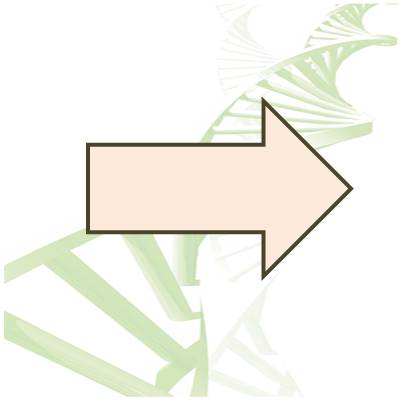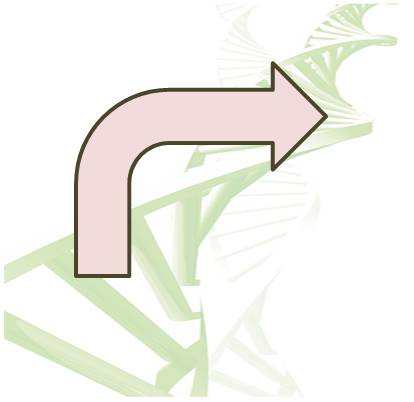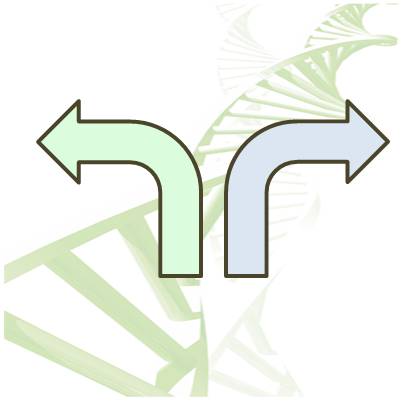PennState/Parts
From 2007.igem.org
| Line 22: | Line 22: | ||
<td class="tdboxes"> | <td class="tdboxes"> | ||
<a href="http://partsregistry.org/Part:BBa_I741005:Experience"><img border="0" src="http://openwetware.org/images/3/3e/Psuigem07picGene.jpg" width="121" height="121"></a></td> | <a href="http://partsregistry.org/Part:BBa_I741005:Experience"><img border="0" src="http://openwetware.org/images/3/3e/Psuigem07picGene.jpg" width="121" height="121"></a></td> | ||
| - | <td class="tddesc"><b><a href="http://partsregistry.org/Part:BBa_I741005">xylR</a></b><p><i>XylR is a protein that belongs to the AraC/XylS family. This regulator participates in controlling several genes involved in xylose utilization. XylR activates the xylAB and xylFGHR operons.</i><a href="http://biocyc.org/ECOLI/NEW-IMAGE?type=ENZYME&object=EG20253-MONOMER">[BioCyc | + | <td class="tddesc"><b><a href="http://partsregistry.org/Part:BBa_I741005">xylR</a></b><p><i>XylR is a protein that belongs to the AraC/XylS family. This regulator participates in controlling several genes involved in xylose utilization. XylR activates the xylAB and xylFGHR operons.</i><a href="http://biocyc.org/ECOLI/NEW-IMAGE?type=ENZYME&object=EG20253-MONOMER">[BioCyc]</a></td> |
</tr> | </tr> | ||
<tr><td class="tdboxes"> | <tr><td class="tdboxes"> | ||
<a href="http://partsregistry.org/Part:BBa_I741018:Experience"><img border="0" src="http://openwetware.org/images/2/29/Psuigem07picPromoteroneway.jpg" width="121" height="121"></a></td> | <a href="http://partsregistry.org/Part:BBa_I741018:Experience"><img border="0" src="http://openwetware.org/images/2/29/Psuigem07picPromoteroneway.jpg" width="121" height="121"></a></td> | ||
| - | <td class="tddesc"><b><a href="http://partsregistry.org/Part:BBa_I741018">Promoter xylF</a></b><p><i>The xylose F promoter is activated by xylR-xylose, and may be negatively regulated by xylR. Two xylR halfsites are included as well as a CRP activator binding site.</i><a href="http://biocyc.org/ECOLI/NEW-IMAGE?type=OPERON&object=TU00374">[BioCyc | + | <td class="tddesc"><b><a href="http://partsregistry.org/Part:BBa_I741018">Promoter xylF</a></b><p><i>The xylose F promoter is activated by xylR-xylose, and may be negatively regulated by xylR. Two xylR halfsites are included as well as a CRP activator binding site.</i><a href="http://biocyc.org/ECOLI/NEW-IMAGE?type=OPERON&object=TU00374">[BioCyc]</a></td> |
</tr> | </tr> | ||
</table> | </table> | ||
| Line 41: | Line 41: | ||
<td class="tdboxes"> | <td class="tdboxes"> | ||
<a href="PART LINK HERE"><img border="0" src="http://openwetware.org/images/3/3e/Psuigem07picGene.jpg" width="121" height="121"></a></td> | <a href="PART LINK HERE"><img border="0" src="http://openwetware.org/images/3/3e/Psuigem07picGene.jpg" width="121" height="121"></a></td> | ||
| - | <td class="tddesc"><b><a href="http://partsregistry.org/Part:BBa_I741005">natural RBS xylR TT 'xylR total'</a></b><p><i>XylR is a protein that belongs to the AraC/XylS family. This regulator participates in controlling several genes involved in xylose utilization. XylR activates the xylAB and xylFGHR operons.</i></td> | + | <td class="tddesc"><b><a href="http://partsregistry.org/Part:BBa_I741005">natural RBS xylR TT 'xylR total'</a></b><p><i>XylR is a protein that belongs to the AraC/XylS family. This regulator participates in controlling several genes involved in xylose utilization. XylR activates the xylAB and xylFGHR operons.</i><a href="http://biocyc.org/ECOLI/NEW-IMAGE?type=OPERON&object=TU00374">[BioCyc]</a></td> |
</tr> | </tr> | ||
| Line 51: | Line 51: | ||
<tr><td class="tdboxes"> | <tr><td class="tdboxes"> | ||
<a href="PART LINK HERE"><img border="0" src="http://openwetware.org/images/2/29/Psuigem07picPromoteroneway.jpg" width="121" height="121"></a></td> | <a href="PART LINK HERE"><img border="0" src="http://openwetware.org/images/2/29/Psuigem07picPromoteroneway.jpg" width="121" height="121"></a></td> | ||
| - | <td class="tddesc"><b><a href="http://partsregistry.org/Part:BBa_I741019">Promoter xylA</a></b><p><i>The xylose A promoter is activated by xylR-xylose, and may be negatively regulated by xylR. Two xylR halfsites are included as well as a CRP activator binding site.</i></td> | + | <td class="tddesc"><b><a href="http://partsregistry.org/Part:BBa_I741019">Promoter xylA</a></b><p><i>The xylose A promoter is activated by xylR-xylose, and may be negatively regulated by xylR. Two xylR halfsites are included as well as a CRP activator binding site.</i><a href="http://biocyc.org/ECOLI/NEW-IMAGE?type=OPERON&object=TU67">[Song97]</a></td> |
</tr> | </tr> | ||
<tr><td class="tdboxes"> | <tr><td class="tdboxes"> | ||
<a href="PART LINK HERE"><img border="0" src="http://openwetware.org/images/2/29/Psuigem07picPromoteroneway.jpg" width="121" height="121"></a></td> | <a href="PART LINK HERE"><img border="0" src="http://openwetware.org/images/2/29/Psuigem07picPromoteroneway.jpg" width="121" height="121"></a></td> | ||
| - | <td class="tddesc"><b><a href="http://partsregistry.org/Part:BBa_I741019">Promoter xylA without CRP site</a></b><p><i>The xylose A promoter is activated by xylR-xylose, and may be negatively regulated by xylR. Two xylR halfsites are included, but the promoter region was cloned without the CRP binding site. Note: the removal of CRP may keep the promoter from working.</i></td> | + | <td class="tddesc"><b><a href="http://partsregistry.org/Part:BBa_I741019">Promoter xylA without CRP site</a></b><p><i>The xylose A promoter is activated by xylR-xylose, and may be negatively regulated by xylR. Two xylR halfsites are included, but the promoter region was cloned without the CRP binding site. Note: the removal of CRP may keep the promoter from working unless the promoter is strengthened.</i><a href="http://biocyc.org/ECOLI/NEW-IMAGE?type=OPERON&object=TU67">[Song97]</a></td> |
<tr><td class="tdboxes"> | <tr><td class="tdboxes"> | ||
<a href="PART LINK HERE"><img border="0" src="http://openwetware.org/images/2/29/Psuigem07picPromoteroneway.jpg" width="121" height="121"></a></td> | <a href="PART LINK HERE"><img border="0" src="http://openwetware.org/images/2/29/Psuigem07picPromoteroneway.jpg" width="121" height="121"></a></td> | ||
| - | <td class="tddesc"><b><a href="http://partsregistry.org/Part:BBa_I741019">Promoter xylF without CRP site</a></b><p><i>The xylose | + | <td class="tddesc"><b><a href="http://partsregistry.org/Part:BBa_I741019">Promoter xylF without CRP site</a></b><p><i>The xylose F promoter is activated by xylR-xylose, and may be negatively regulated by xylR. Two xylR halfsites are included, but the promoter region was cloned without the CRP binding site. We believe the xylF promoter is stronger than the xylA promoter. Note: the removal of CRP may keep the promoter from working unless the promoter is strengthened.</i><a href="http://biocyc.org/ECOLI/NEW-IMAGE?type=OPERON&object=TU67">[Song97]</a></td> |
<tr><td class="tdboxes"> | <tr><td class="tdboxes"> | ||
<a href="PART LINK HERE"><img border="0" src="http://openwetware.org/images/6/6a/Psuigem07picPromotertwoway.jpg" width="121" height="121"></a></td> | <a href="PART LINK HERE"><img border="0" src="http://openwetware.org/images/6/6a/Psuigem07picPromotertwoway.jpg" width="121" height="121"></a></td> | ||
| - | <td class="tddesc"><b><a href="http://partsregistry.org/Part:BBa_I741015">Two way promoter xylA-F with CRP site</a></b><p><i>The xylose A promoter is activated by xylR-xylose, and may be negatively regulated by xylR. Two xylR halfsites are included and a CRP binding site. </i></td> | + | <td class="tddesc"><b><a href="http://partsregistry.org/Part:BBa_I741015">Two way promoter xylA-F with CRP site</a></b><p><i>The xylose A promoter is activated by xylR-xylose, and may be negatively regulated by xylR. Two xylR halfsites are included and a CRP binding site. </i><a href="http://biocyc.org/ECOLI/NEW-IMAGE?type=OPERON&object=TU67">[Song97]</a><a href="http://biocyc.org/ECOLI/NEW-IMAGE?type=OPERON&object=TU67">[Laikova01]</a></td> |
</tr> | </tr> | ||
| Line 73: | Line 73: | ||
<br> | <br> | ||
<h2>References</h2> | <h2>References</h2> | ||
| + | Biocyc: <a href="http://nar.oxfordjournals.org/cgi/content/full/33/suppl_1/D334?ijkey=80p4BbGpEFjLQ&keytype=ref">Nucleic Acids Research 33:D334-7 2005</a>Nucleic Acids Research 33:D334-7 2005 | ||
Hanamura92: Hanamura A, Aiba H (1992). "A new aspect of transcriptional control of the Escherichia coli crp gene: positive autoregulation." Mol Microbiol 1992;6(17);2489-97. PMID: 1328816 | Hanamura92: Hanamura A, Aiba H (1992). "A new aspect of transcriptional control of the Escherichia coli crp gene: positive autoregulation." Mol Microbiol 1992;6(17);2489-97. PMID: 1328816 | ||
<br> | <br> | ||
| - | + | Song97: Song S, Park C (1997). "Organization and regulation of the D-xylose operons in Escherichia coli K-12: XylR acts as a transcriptional activator." J Bacteriol 1997;179(22);7025-32. PMID: 9371449 | |
| + | <br> | ||
| + | Laikova01: Laikova ON, Mironov AA, Gelfand MS (2001). "Computational analysis of the transcriptional regulation of pentose utilization systems in the gamma subdivision of Proteobacteria." FEMS Microbiol Lett 205(2);315-22. PMID: 11750821 | ||
</html> | </html> | ||
Revision as of 20:56, 26 October 2007
| Home | Diauxie Project | Dosimeter Project | People | Lab | Parts | Acknowledgements | Links |
New Parts (submitted) |
|
 |
xylR XylR is a protein that belongs to the AraC/XylS family. This regulator participates in controlling several genes involved in xylose utilization. XylR activates the xylAB and xylFGHR operons.[BioCyc] |
 |
Promoter xylF The xylose F promoter is activated by xylR-xylose, and may be negatively regulated by xylR. Two xylR halfsites are included as well as a CRP activator binding site.[BioCyc] |
New Parts (underconstructed/unverified) |
|
 |
natural RBS xylR TT 'xylR total' XylR is a protein that belongs to the AraC/XylS family. This regulator participates in controlling several genes involved in xylose utilization. XylR activates the xylAB and xylFGHR operons.[BioCyc] |
 |
CRP* CRP* is a modified CRP which is cAMP independent. CRP is a dual transcriptional regulator that induces a severe bend in the DNA and is capable of regulating the expression of more than 200 genes. It is the major global regulator of catabolite-sensitive operons and it controls its own synthesis.[Hanamura92] |
 |
Promoter xylA The xylose A promoter is activated by xylR-xylose, and may be negatively regulated by xylR. Two xylR halfsites are included as well as a CRP activator binding site.[Song97] |
 |
Promoter xylA without CRP site The xylose A promoter is activated by xylR-xylose, and may be negatively regulated by xylR. Two xylR halfsites are included, but the promoter region was cloned without the CRP binding site. Note: the removal of CRP may keep the promoter from working unless the promoter is strengthened.[Song97] |
 |
Promoter xylF without CRP site The xylose F promoter is activated by xylR-xylose, and may be negatively regulated by xylR. Two xylR halfsites are included, but the promoter region was cloned without the CRP binding site. We believe the xylF promoter is stronger than the xylA promoter. Note: the removal of CRP may keep the promoter from working unless the promoter is strengthened.[Song97] |
 |
Two way promoter xylA-F with CRP site The xylose A promoter is activated by xylR-xylose, and may be negatively regulated by xylR. Two xylR halfsites are included and a CRP binding site. [Song97][Laikova01] |
References
Biocyc: Nucleic Acids Research 33:D334-7 2005Nucleic Acids Research 33:D334-7 2005 Hanamura92: Hanamura A, Aiba H (1992). "A new aspect of transcriptional control of the Escherichia coli crp gene: positive autoregulation." Mol Microbiol 1992;6(17);2489-97. PMID: 1328816Song97: Song S, Park C (1997). "Organization and regulation of the D-xylose operons in Escherichia coli K-12: XylR acts as a transcriptional activator." J Bacteriol 1997;179(22);7025-32. PMID: 9371449
Laikova01: Laikova ON, Mironov AA, Gelfand MS (2001). "Computational analysis of the transcriptional regulation of pentose utilization systems in the gamma subdivision of Proteobacteria." FEMS Microbiol Lett 205(2);315-22. PMID: 11750821